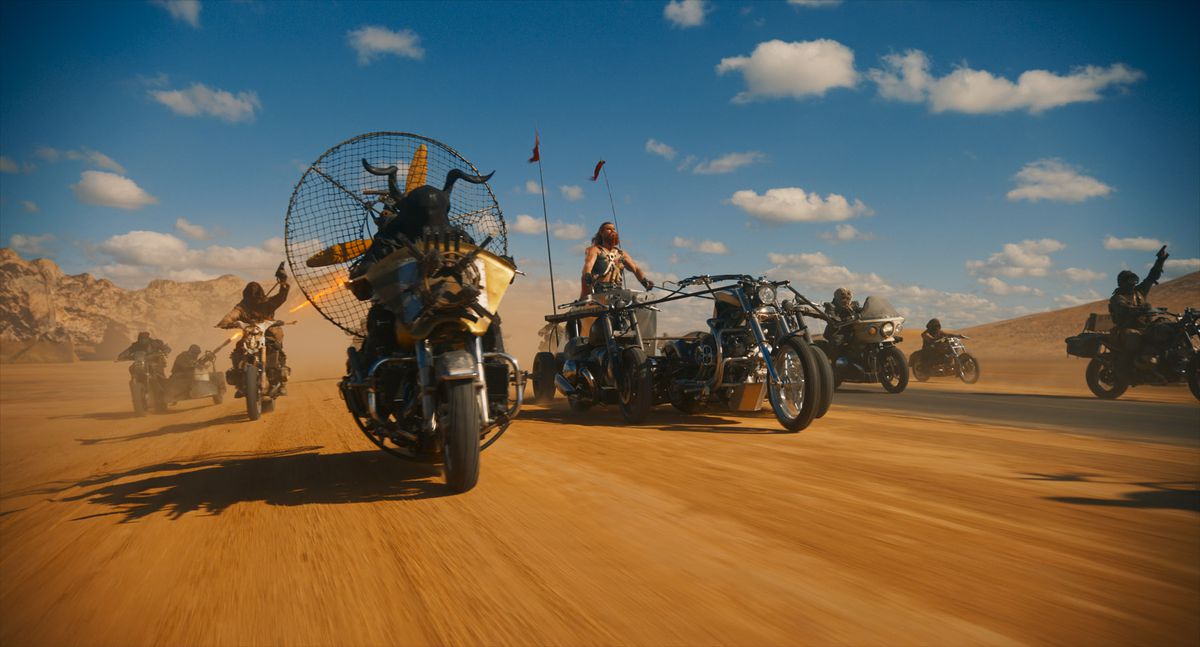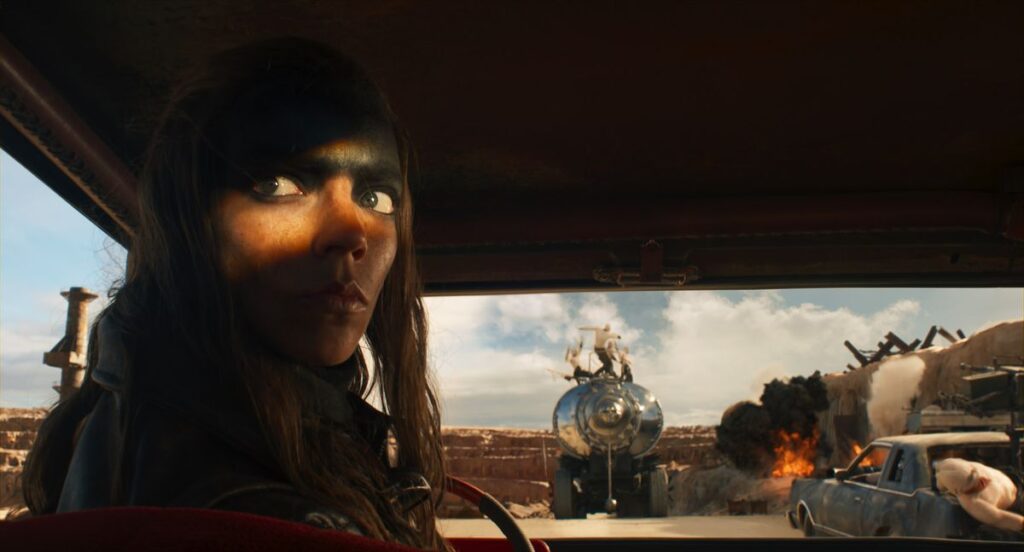Continuity in the Mad Max movie series is pretty confusing. It might be hard to believe, but the 40-year-old franchise spawned from a micro-budget Australian movie about raiders in a post-apocalyptic wasteland doesn’t actually have the most coherent timeline. Furiosa, the full-speed-ahead latest film in the series, doesn’t clear anything up, although it does have a specific timeline connection to its predecessor, Mad Max: Fury Road. But we’ll do our best to help you understand it.
The first important thing to remember about Mad Max’s timeline is that it kind-of-sort-of got rebooted. Fury Road, the fourth installment in the series, was originally planned for production in the ’90s or early 2000s, with Mel Gibson returning to his central role as roving loner Max . However, after numerous delays, and numerous instances of Mel Gibson being a horrible person in public, the movie got an updated script and a new Max — the much younger Tom Hardy.
Image: Warner Bros.
With the change in actors and in Max’s apparent age, the series had to be changed slightly, too. So Fury Road is essentially set in an alternate timeline from the original movies, where key events happen at slightly different times. In Fury Road’s timeline, the nuclear annihilation of huge portions of humanity happened between the events of Mad Max and The Road Warrior, rather than after The Road Warrior, like they do in the original trilogy.
This feels especially confusing given that Furiosa’s first trailer says the movie takes place 45 years after “the Collapse.” Technically, this means the movie probably takes place a little less than 45 years after the events of The Road Warrior. This doesn’t make a ton of sense when compared to the events of Fury Road, especially if it’s the same Max character.

Image: Warner Bros.
But if you’re trying to square that math either with the events of the original Mad Max trilogy or with Fury Road, let me offer some helpful advice: Don’t. It probably doesn’t make sense. In fact, the comic books that came out since Fury Road tried to fit its timeline back into the original trilogy, and never got close to succeeding.
And you know what? That’s OK.
Mad Max director, writer, and creator George Miller, in his infinite wisdom, rightly decided with the release of Fury Road that maybe Max is an idea larger than petty grievances like canon and continuity. Max is a myth and a legend, and as Miller himself said, anything that happens to him is just “an episode” in a tumultuous life, with no specific connection needed. As he put it in a press conference for Fury Road:
All the films have no strict chronology. It’s probably after Thunderdome, but it’s an episode in the life of Max and this world. It’s basically an episode, and it’s us revisiting that world. I never wrote the story, any of the stories, with a chronological connection.
Furiosa is no different, and that first trailer said as much in its first few seconds. This is her Odyssey. She’s destined to become a myth, and myths are too important to worry about exactly how the details line up. We know this is a prequel because it deals with her childhood and young adulthood; we know it spans 15 years of her life because she tells us in the movie itself that 15 years have passed since we first saw her on screen. But in terms of exactly how much time passes between the end of Furiosa and the beginning of Fury Road… Miller isn’t concerned with that, and we don’t need to be either.

